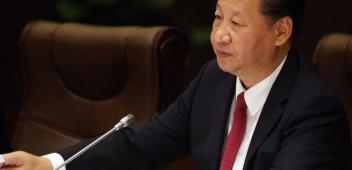Ambitious foreign policy push yet to coalesce
Ambitous foreign policy push yet to coalesce
Dr Michael Fullilove
17 October 2014
Please click here for the online text.

Executive Summary
Tony Abbott's promise to 'shirt front' Russian president Vladimir Putin has led critics to argue he is temperamentally unsuited to conducting foreign policy. In fact, he has made a good start to this part of the prime minister's job.
Three strengths of Abbott's foreign policy – and three concerns – stand out. Foreign policy is central to this government. This is partly a function of events, including the disappearance of MH370, the downing of MH17 and the rise of Islamic State. But it also reflects the personalities of the key players. National Security Committee meetings are frequent. Foreign Minister Julie Bishop is the government's outstanding cabinet minister. Treasurer Joe Hockey is focused on the G20 leaders summit in Brisbane.
And the Prime Minister himself is plainly ambitious when it comes to the world.
Before he was elected, Abbott warned that Australians shouldn't get "ideas above our station." In office, however, he accepts no such restrictions on his freedom of movement. He wants Australia to be a player, not a cheerleader.
He spoke out strongly on MH17, laying the blame at Putin's feet. He has quickly deployed Australian forces to participate in the mission against Islamic State.
Second, the prime minister is a globalist, not a regionalist. In opposition, Abbott promised his foreign policy would consist of "more Jakarta, less Geneva." In office, the reverse has been the case.
Abbott is big on the United States alliance. He impressed President Obama in their Oval Office meeting in June by offering assistance, rather than requesting it.
Abbott has also turned out to be an enthusiastic user of the United Nations Security Council – another unexpected development given his skepticism in opposition towards Labor's campaign for the seat. Australia's Security Council membership lent his government authority as it sought information and justice on behalf of the Australians aboard MH17.
Finally, values matter to the prime minister. He is no bloodless realist focused purely on national interests.
Abbott is interested in the big global debates. He sees Australia as part of the West, a grouping that is set upon and yet central to the maintenance of global order. This view has informed his outreach towards Japan and his firm line towards China.
Three concerns accompany Abbott's foreign policy, however.
The first is the risk of overstretch. Ambition is welcome, so long as it exists in proportion to capability.
Prime ministers who try to do too many things at once do few of them well.
It is right for Australia to contribute to the fight against Islamic State. But Abbott should ask himself whether we can support a long-term mission in Iraq and Syria at the same time that we take tough lines on both Russia and China, develop deeper ties to Indonesia, Japan, India and other major regional powers, return our defence budget to the proper level, and discharge all our other international obligations.
He should be careful not to stretch things so far that something snaps.
A related concern is that Abbott shows a tendency towards imprudence. The shirt fronting saga is a trivial example, but there is a more serious one. According to news reports, in the aftermath of the MH17 crash he wanted to put one thousand Australian troops onto the crash site in Eastern Ukraine. Such a deployment would have presented unacceptable risks to Australian personnel as well as unprecedented logistical problems for the Australian Defence Force. Why on earth would we put so many of our people between such bitter enemies? Luckily, cooler heads prevailed.
The final concern is that ideological factors are not being quarantined from international policy. It is regrettable that Australia is taking a followers' position on climate change, especially when Lowy Institute polling reveals that nearly two-thirds of Australia would prefer our country to take a leadership position.
Similarly, the brouhaha over facial coverings in the parliament was troubling. We should draw a crystal-clear line between the couple of hundred extremists among us who have fought in the Middle East and the vast mass of Australian Muslims who are loyal Australians. Indeed, when it comes to confronting terrorism, a good relationship between the security agencies and the Australian Muslim community is our number one asset.
The presiding officers' wrong-headed "burqa ban" devalued that asset. It is good that Abbott has asked them to reconsider. But it is unfortunate that he allowed the provisional wing of his own party to force the decision in the first place.
Prime Minister Abbott has generally cut an impressive figure in his first year on the world stage. There is much to admire in his record. His challenge now is to marry his large ambitions with a view of the national interest that is both liberal and practical.


